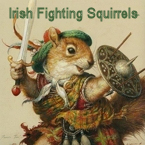Lobster
Posts: 5104
Joined: 8/8/2013
From: Third rock from the Sun.
Status: offline

|
quote:
ORIGINAL: GaryChildress
I apologize for the misunderstanding. I was thinking in terms that the emperor didn't take an active role in conducting the war except in the end when he stepped in to end it. But I suppose that may not be true either.
Erp...From the Atlantic:GLOBAL
The Radio Broadcast That Ended World War II
In 1945, Emperor Hirohito overcame a military coup to announce Japan’s surrender. Which raises a question: Who decides when a war is over?
THOMAS B. ALLEN and NORMAN POLMAR
AUGUST 7, 2015
There was no way that Japanese civilians could petition Emperor Hirohito to accept the terms of the July 26 Potsdam Declaration outlining the Allies’ surrender demands—among them the complete disarmament of Japanese forces and the elimination “for all time the authority and influence of those who have deceived and misled the people of Japan into embarking on world conquest.” But the leaflets reflected reality: Only the emperor could end the war. To do that, though, he would have to defy his military leaders, knowing that his call for peace would almost certainly inspire a military coup.
When news of the Nagasaki bombing came on August 9, the Supreme War Direction Council reacted not by moving toward peace but by declaring martial law throughout Japan. With the cabinet unable to reach a consensus on whether to accept the surrender terms, and War Minister Korechika Anami leading the opposition, its members finally turned to the emperor for a decision.
Shortly before midnight, Hirohito, a weary, sad-eyed man, walked into the hot, humid air-raid shelter 60 feet below the Imperial Library where his 11-member cabinet was gathered. He sat in a straight-backed chair and wore a field marshal’s uniform, ill-fitting because tailors were not allowed to touch this man revered as a god. The gathering itself was an extraordinary event known as a gozen kaigin—“a meeting in the imperial presence.” Hirohito had been emperor since 1926 and, as commander in chief of the Japanese armed forces, had often been photographed in his uniform astride his white horse during the war. But U.S. propaganda portrayed him as a figurehead and blamed the generals for prolonging the war.
Hirohito patiently listened as each cabinet member presented his argument. At 2 a.m. on Friday, August 10, Prime Minister Kantaro Suzuki did something that no prime minister had ever done: He asked Hirohito for an imperial command—known as the Voice of the Crane since the sacred bird could be heard even when it flew unseen.
Speaking softly, Hirohito said he did not believe that his nation could continue to fight a war. There is no transcript of his address, but historians have pieced together accounts of his rambling words. He concluded: “The time has come when we must bear the unbearable. ... I swallow my own tears and give my sanction to the proposal to accept the Allied proclamation.”
< Message edited by Lobster -- 6/24/2020 4:50:16 PM >
_____________________________
http://www.operationbarbarossa.net/ Two things are infinite: the universe and human stupidity and I’m not sure about the universe-Einstein Q: What do you call a boomerang that doesn’t come back? A: A stick.
|
 Printable Version
Printable Version















 New Messages
New Messages No New Messages
No New Messages Hot Topic w/ New Messages
Hot Topic w/ New Messages Hot Topic w/o New Messages
Hot Topic w/o New Messages Locked w/ New Messages
Locked w/ New Messages Locked w/o New Messages
Locked w/o New Messages Post New Thread
Post New Thread